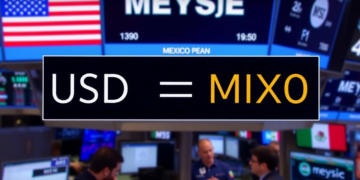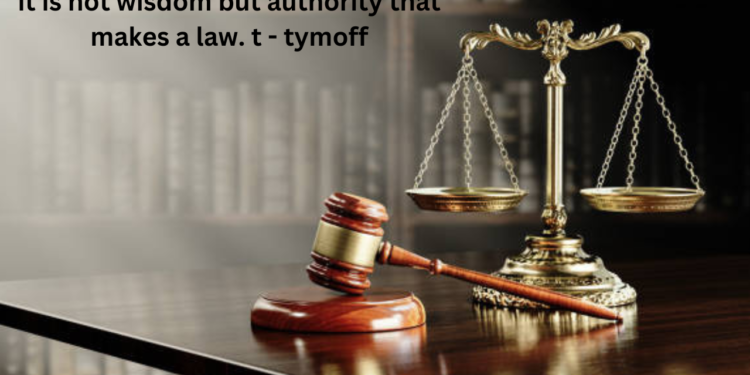“It is not wisdom but authority that makes a law. T – Tymoff.” This statement, rooted in the philosophical musings of Thomas Hobbes, underscores a profound and often debated truth about the nature of governance and law. Hobbes, a 17th-century English philosopher, believed that the legitimacy of laws stems not from their moral or intellectual merit but from the authority that enforces them. This article delves into the implications of this thought, its historical relevance, and its resonance in contemporary society.
What Defines a Law?
A law, at its core, is a set of rules governing behavior within a society. But what gives it force? Is it the wisdom behind its creation or the authority enforcing it? Hobbes argued that the latter is paramount. Laws derive their power not from their inherent goodness or logical construction but from the sovereign’s ability to enforce them. Without authority, laws become mere suggestions, lacking the weight to compel adherence.
Hobbes’s Perspective on Authority
Hobbes’s philosophy was shaped by the chaotic backdrop of the English Civil War, where the absence of centralized authority led to instability and conflict. For Hobbes, authority was the cornerstone of social order. His famous work Leviathan outlines a vision where the sovereign, endowed with ultimate authority, ensures peace and stability, even if individual freedoms are curtailed.
According to Hobbes, wisdom—while desirable—is secondary to authority in the making of laws. A wise law without enforcement is ineffective. Conversely, an enforced law, even if unwise, maintains order. This pragmatic approach prioritizes societal stability over intellectual or moral ideals.
Authority Versus Wisdom: A Balancing Act
Critics of Hobbes often argue that blind authority can lead to oppression. History offers countless examples where unchecked authority birthed unjust laws. The question then arises: Can authority coexist with wisdom in governance?
Modern democratic systems attempt to balance authority with collective wisdom. Laws are crafted through debate, informed by expertise, and enforced by designated authorities. However, even in such systems, Hobbes’s insight remains relevant. A law, no matter how well-conceived, requires authority for effective implementation.
Implications for Contemporary Society
The essence of “It is not wisdom but authority that makes a law” is evident in today’s world. Consider environmental laws. These regulations, often rooted in scientific wisdom, struggle to achieve their goals without strict enforcement. While wisdom informs the law, authority ensures compliance.
Similarly, debates around emerging technologies, privacy, and artificial intelligence showcase the tension between ethical wisdom and authoritative enforcement. As societies grapple with these challenges, Hobbes’s assertion serves as a reminder: authority is indispensable, but it must be wielded responsibly.

The Risks of Overemphasizing Authority
While Hobbes highlights the necessity of authority, its misuse can erode trust and breed dissent. Laws that lack wisdom risk being perceived as oppressive. For example, historically, authoritarian regimes have enforced laws that prioritized control over justice, leading to social unrest.
This highlights the need for accountability in authority. Institutions must ensure that those in power are guided by wisdom and serve the greater good. Authority without wisdom may enforce laws, but it cannot inspire legitimacy or lasting harmony.
The Enduring Relevance of Hobbes
Hobbes’s philosophy continues to provoke thought and debate among scholars, policymakers, and citizens. His emphasis on authority as the backbone of law reminds us of the fragility of social order. However, his insights also challenge us to strive for systems where authority and wisdom coexist harmoniously.
As we navigate complex global issues, the balance between wisdom and authority will shape the future of law and governance. Hobbes’s words compel us to reflect on our priorities: Do we value order above all else, or can we envision a world where laws are both wise and enforceable?
Also Read: Understanding PlutoScreen.life
Final Reflections
The quote, “It is not wisdom but authority that makes a law. T – Tymoff,” encapsulates a fundamental truth about human society. Laws require authority to function, yet they must be guided by wisdom to endure. Hobbes’s perspective, while rooted in the past, offers timeless insights into the dynamics of power, governance, and societal stability.
As we continue to evolve as a society, may we seek to temper authority with wisdom, ensuring that the rules we live by are not only enforceable but also just and honest.




































Thankfulness tto my fater who informed me regarding
this weblog, this web site is genuinely awesome. https://Www.waste-ndc.pro/community/profile/tressa79906983/
Thankfulness to my father who informed me regarding thiis weblog, this web site is genuinely awesome. https://Www.waste-ndc.pro/community/profile/tressa79906983/